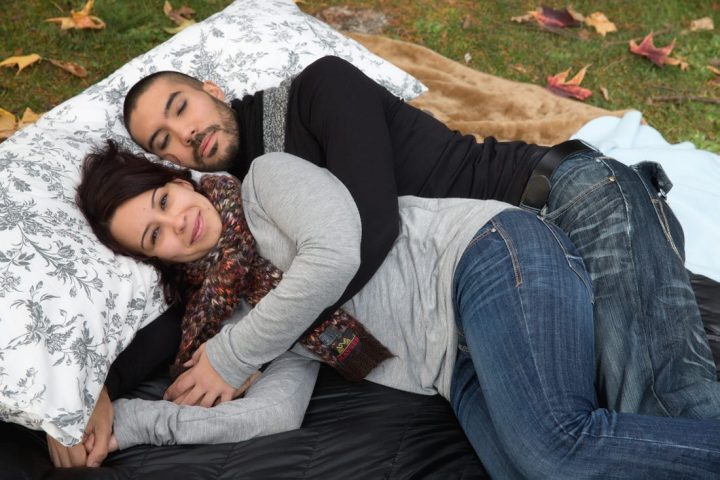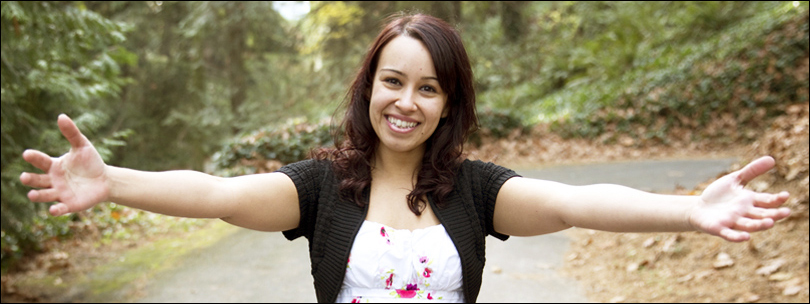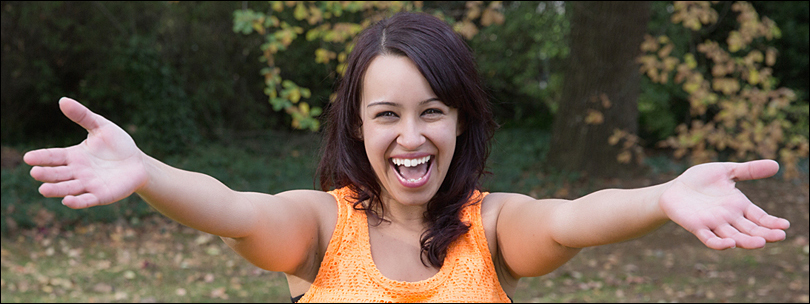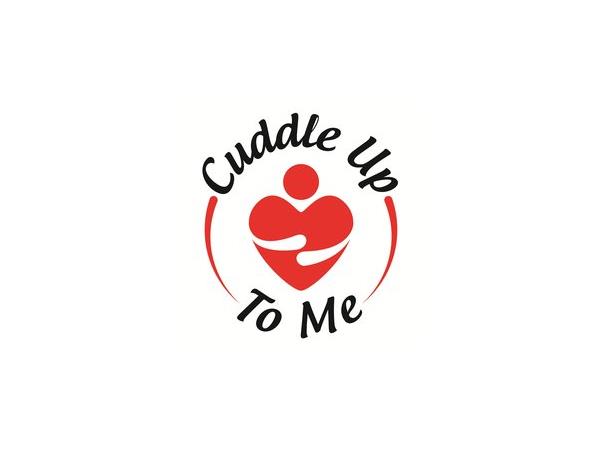
With the Covid-19 pandemic taking the world by storm, these are unprecedented times to say the least. With much uncertainty about what tomorrow may bring for our nation, our families, and our own personal health, Samantha’s Hess’ work is more important than ever. For information about Skype or telephone sessions, contact her here.
Samantha is the owner of Cuddle Up to Me – a cuddle studio in NE Portland that’s been operating for 7 years. Like most people, I found out about Cuddle Up to Me when I saw an article from major news outlet. And, like most people, I found it an odd concept, but to each their own. However, after I met Sam and toured the studio, I realized this is a vital service for people who need comforting, healing and the ability to work through emotional trauma.
When I arrived, a man who looked a bit deflated was leaving and Hess asked him if he wanted a hug. He said he did and she gave him a long, healing hug. He cried a little and left. That simple gesture made quite an impact on me.
The consensual, non-sexual, fully clothed sessions take place at Hess’s studio in NE Portland. She gave me a tour of the venue just before the Shelter-in-Place order was mandated in Portland. The rooms are comfortable and have different themes. My favorite is the group room which has tons of blankets, cushions, and stuffed animals. The cozy vibe made me want to snuggle in with a book and take a nap. Instead, I sat down with Hess to discuss Cuddle Up to Me, how it started, and how it all works.
Anna Alexander: I read a NT Times article you were quoted in that mentioned cuddling has gone out of style and needs to come back. Why do you think that is?
Samantha Hess: I think it’s partly the lack of consent culture we have. People don’t know how to express their boundaries, they don’t often know what their boundaries are because we don’t encourage people to experiment. We see platonic touch as something that can happen with children and not with adults. And in the #metoo era, people are afraid of each other and it makes for a really difficult time to navigate platonic touch.
AA: Do you think people are afraid to ask to be hugged or touched or embarrassed?
SH: Yeah. There’s a stigma for having any kind of need in our society, especially those around touch because acceptance is part of this societal need to be accepted and if we’re rejected it feels like we’re almost killing ourselves and it’s devastating when people say no.The worst case scenario is when people ignore it. And if you’re not open to putting that out there or having people ignore it and having them say no in ways that are rude or disrespectful, you’re not going to be able to ask. And how many of us feel good about ourselves enough to do that? You certainly don’t want to be labeled a weirdo if you have to admit you have a need for touch.
AA: What services do you provide for people?
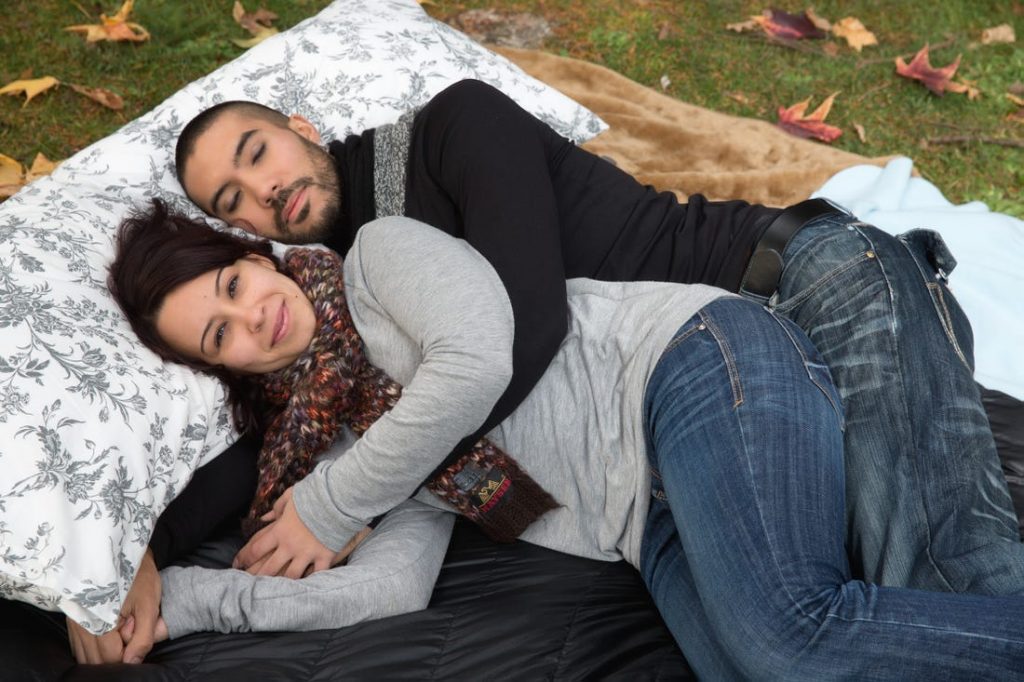
SH: All of our staff go through a minimum of 40 hours of training to make sure they have the basic skills of communication really. The cuddling is kind of secondary. Yes, you want to keep yourself safe and learn the poses, but it’s much more about the communication. We spend about 20 hours at least teaching people how to conduct consultations and learn how people respond and have them try out sessions with active clients here so they can get their own responses down. And for us, that initial 30-minute consultation – it doesn’t cost people anything. They come in, their is no obligation, they can just learn about this, help us understand their boundaries and what they hope to get out of this and we can figure out if this is an appropriate service for both of us and we and them feel safe enough. Once we set up all the communication and have this rapport built – then we talk about the consent and the boundaries and make sure we have a plan so it’s not so scary. This the place where people are encouraged to change their mind… you can try something, and if you hate it, you can instantly change and you don’t have to explain yourself.
AA: What other activities can people do here other than get cuddled?
SH: We have a number of clients who come here with different life challenges and a number of different situations in which they wouldn’t feel comfortable having physical contact with another person. I’ve had it take 6-months of sessions with someone before they allowed any touch. We have a TV where people can watch videos or movies, we have board games, I’ve had people I’ve read to. Sometimes people will come and I’ll sit in the chair and they’ll sit on the bed and we’ll just chat and share space. Some people will come in and do dancing which is really sweet. It makes a difference to have that basic human connection. Someone who really cares.
AA: Tell me about how you help veterans.
SH: So, it varies a lot because with the PTSD so prevalent with our veterans these days, we want to make sure we meet people where they’re at and people have a lot of triggers and activations that can create an unsafe environment for both of us. I have been assaulted by some of my clients that have been triggered. It does happen and it’s something I’m well aware of it… especially if a car backfires outside of the building.
It’s not just the young vets, it’s the older veterans as well. They have never gotten help until recently if they are even comfortable getting the help now. And it’s not something they are supposed to talk about and there’s no safe spaces for them and people don’t understand.
Another nice thing is we’re not here to fix it. We’re not here to advise you or give you solutions to your problems. So, our basic method is compassionate listening. Instead of telling people how to fix their problems, we’re just going to be here.
All of our sessions are confidential and even if people come in and see multiple cuddlers they have to give information to each person they see here because even amongst the staff, we can’t share information unless the client has given us written permission. It’s a really safe place.
We have a very solid foundation. There is no secret menu or alternative things; everyone gets the same service here. And I love that it just gets to be simple.
AA: Do you think if you had started this business anywhere other than Portland, you would have been this successful?
SH: I don’t think so honestly. Portland is the perfect place for this because people expect weird things here and so it’s more normalized. Maybe Austin could have managed it, but I think we do weird better.
Hess is one of the few people who actually gets excited about going to work, “I get to dress like a 7-year old at a slumber party and I don’t have to wear shoes!”
AA: So, I am very empathic and tend to pick up on people’s moods. How do you not pick up on their moods?
SH: I am very lucky that I’m empathetic but I’m not empathic so I don’t actually feel people’s energies but I am very much trained to tune in to body language and voice and all those things.
And so, I’m very lucky with that because there’s less self protection I have to do, but we do have empaths on our staff and it does take more effort for them to keep themselves feeling safe and not drained.
We do have a lot of tools around that that we teach. There is a lot to it. One of my favorites is getting the wiggles out. Once they are done with whatever interaction and in a solitary safe space, you literally shake your whole body. It’s a version of TRE -trauma release exercises – you literally shake your whole body and release the trauma and not store it. It’s very effective.
What I do for me is to make sure I have time between appointments to take care of myself to get back to a natural space. I change my clothing to make sure I don’t have the scent of another person on me as it can trigger memories. I meditate a lot and make sure I gave myself those moments of downtime and not looking at a screen or answering e-mails. And then the biggest one for me is I don’t spend a lot time on social media.
I realize social media give me anxiety and so uncomfortable. I spend 10 minutes a week on social media and that’s mostly answering message for the business.
AA: Do you want to keep being a cuddler when you grow up?
SH: I struggle a lot. This is what I want to be when I grow up, but the challenge for me is I want to be my own employee. It would be so amazing to work here and make more than $4/hour. A majority if the income I make here goes back to the business and not to me. I spent the first year of the retail space paying myself $0 and now I pay myself $4.30/hour. It’s a tough business, but I think in some capacity, I will always have an interest in this business. But I also do other things like the trainings, a Patreon and I’m publishing my second book at the end of the year. I’m a doer of things!
AA: Is being a part of Weird Portland United a badge of honor for you?
SH: I love being a part of WPU and this city. I’m so proud of Portland and all of our inhabitants and how accepting we are. Yes, we’re weird, but that’s a positive thing. It’s such a beautiful thing to see that people are just accepted.
AA: Thank you so much for your time!
For those of you who wondering, I did not get cuddled while I was there. I am the least cuddly person on this planet. Just ask my husband! However, for those of you looking to book a session, Cuddle Up to Me offers a variety of sessions from fifteen minutes to five hours. Sessions are $60-$80/hour depending on the experience of the cuddler. They have Certified Cuddlers and Master Cuddlers. A Master Cuddler has taken at least 40 hours of training and has completed at least 250 session hours. And, if you don’t want to cuddle, you can come in and have someone read you a story, play a game with you or even watch a movie.

